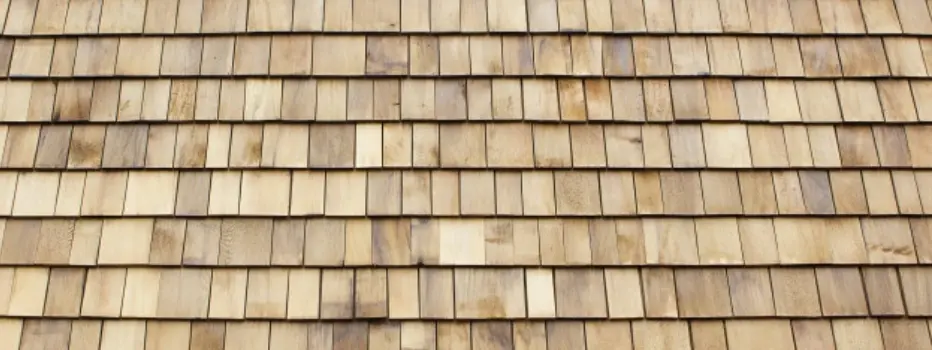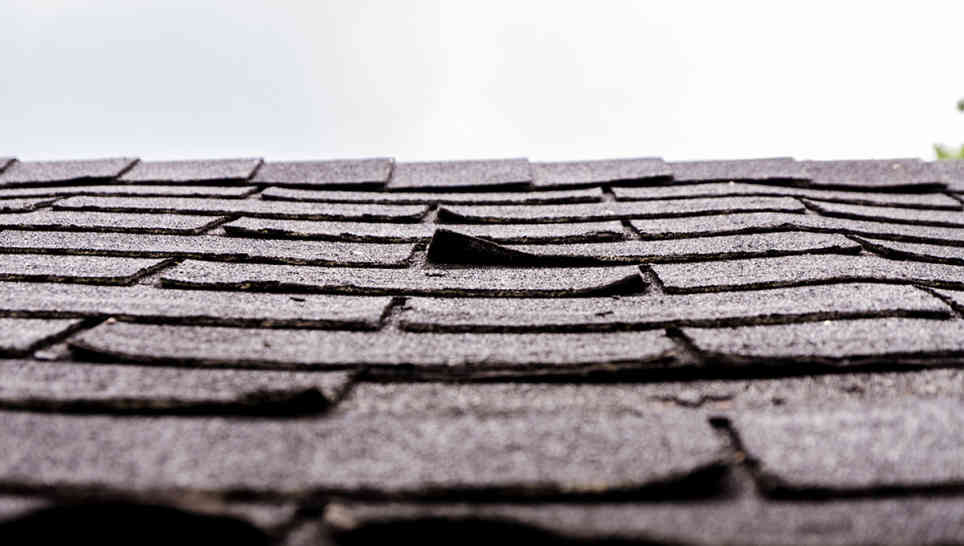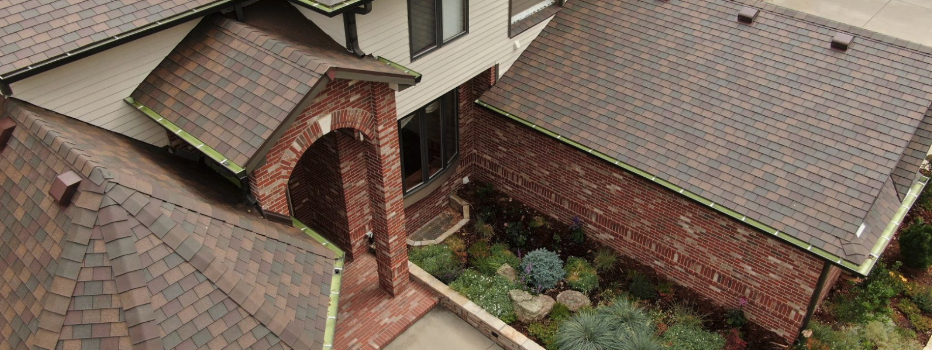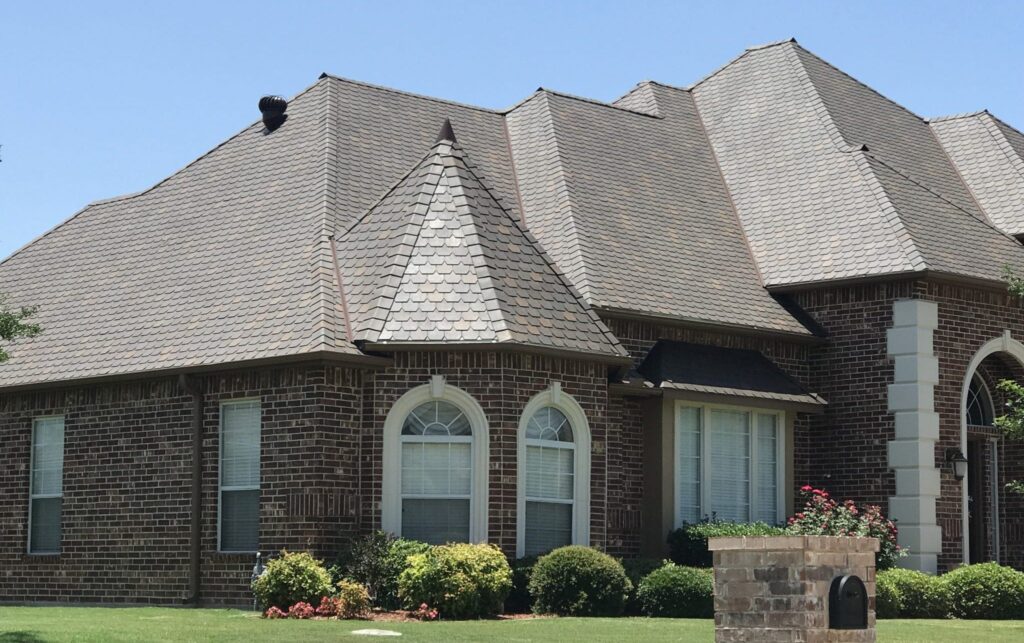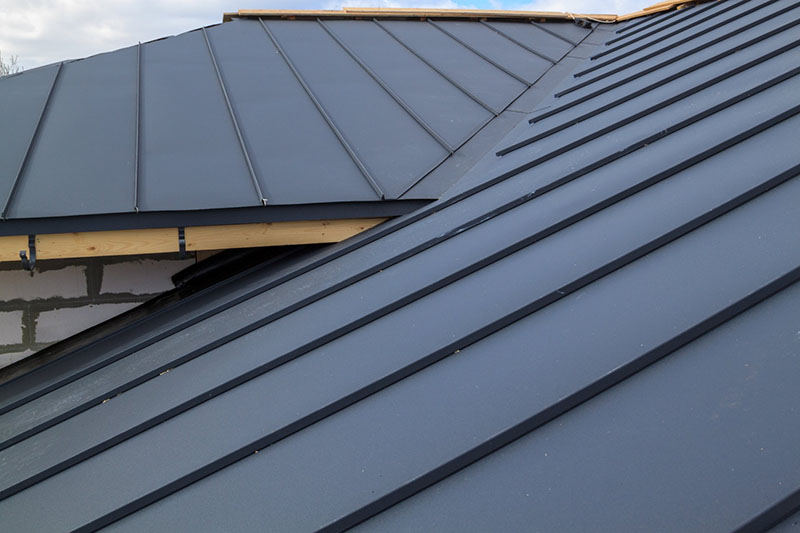In the early 1900s, organic asphalt shingles became the primary roofing option and dominated for the next 70 years with little innovation. By the 1980’s fiberglass asphalt shingles – including multi-layer “composite shingles” took hold, followed by other alternative materials like wood fiber shingles. Some of these performed well, some did not. Over the past 20 years the Polymer Composite or Synthetic Shingle has been refined and has gained popularity in many markets.
Not to be confused with a composite asphalt shingle which generally means multi-layer, the Polymer Composite Shingle is made from advanced materials and have so much more to offer when compared to traditional asphalt shingles, which makes them a great option for most homes across the country. Here is what you should know when it comes to the polymer or synthetic composite shingles vs the asphalt composite shingles debate.
What are Polymer Composite Shingles?
Polymer Composite or Synthetic shingles, as they are known, are made from engineered materials and sometimes contain a mixture of recycled plastics and rubber. They come in many different styles and profiles, and are made to replicate the look of traditional asphalt shingles, wood shakes, and stone tiles. However, unlike their traditional counterparts, composite shingles are a much more durable and maintenance-free option.
6 Problems With Asphalt Shingles
1. Asphalt Loses Granules
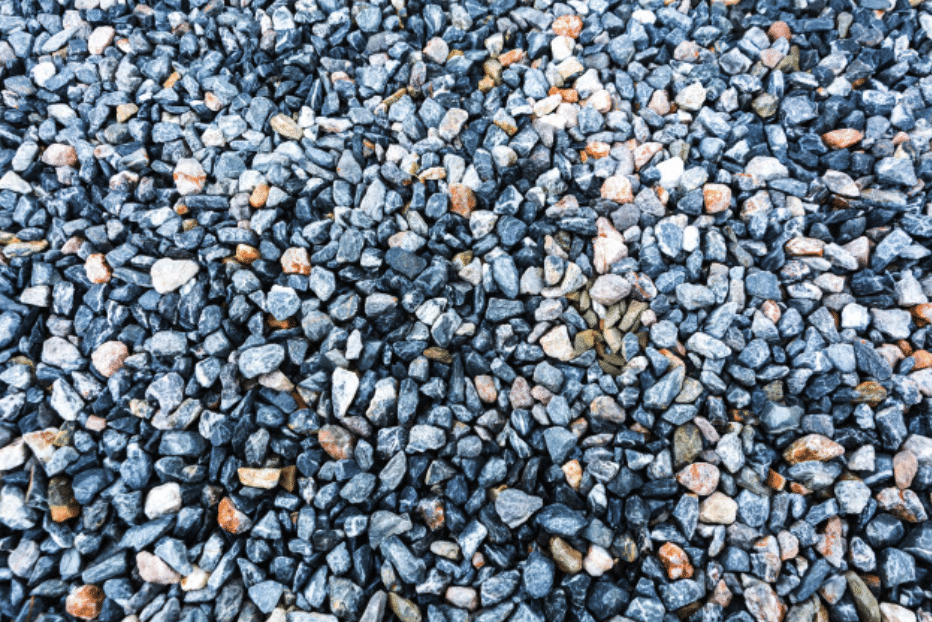
Asphalt shingles are made up of multiple layers of materials, with the uppermost layer consisting of small granules. These granules provide the shingle color, but have the primary function of protecting the asphalt waterproofing layer below from UV damage. Without the protective layer of granules an asphalt shingle will quickly become brittle and crack. The granules also add fire resistance, and make installation possible – as the installers could not walk on bare asphalt. However, being exposed to the elements means that these granules are gradually lost over time. Wind and hail cause granule loss, even with Class 4 impact rated shingles. And granule loss is generally not covered in your product warranty. Granule loss is serious as it is the #1 signal that the shingles are reaching the end of their life and need to be replaced.
Polymer Composite shingles do not have granules so there is no need to worry about a loss of protection from the shingles. Instead, they are made of a single layer of durable, UV resistant material that is engineered to handle the various elements that granules were meant to protect asphalt shingles from, including foot traffic from the installers.
2. They Easily Tear on Impact
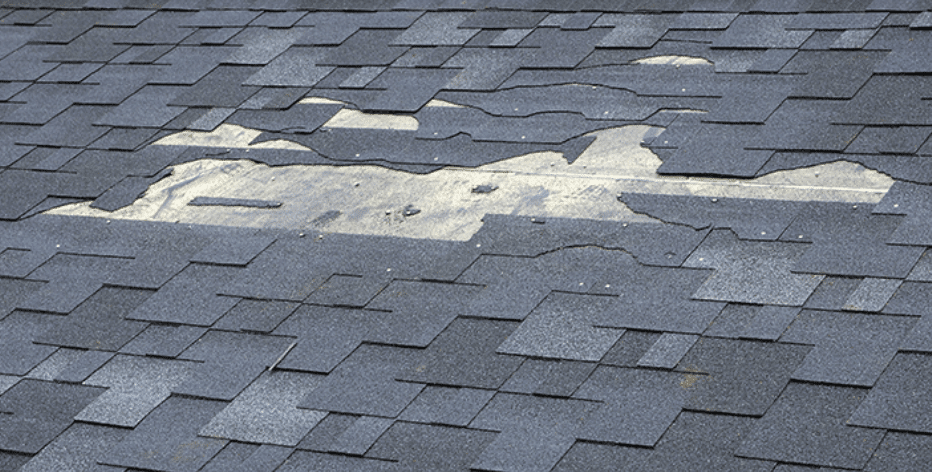
While some asphalt shingles offer a decent amount of durability, they are not indestructible or highly impact resistant. With exposure to the elements, things like hail and wind can have a massive impact on the shingles life expectancy. They can also tear and crack during normal installation, depending on how they are handled and nailed down. This type of damage will mean repairs have to be done or shingles replaced, otherwise, the roof will begin to fail almost immediately.
Polymer Composite shingles are specifically engineered to handle the elements, and the rigors of installation. Unlike asphalt shingles, they offer superior strength and resistance to tearing and cracking. They are also easier to install, so you don’t have to worry about granule loss or torn and cracked shingles during the installation process.
3. Strong Winds Can Damage a Roof
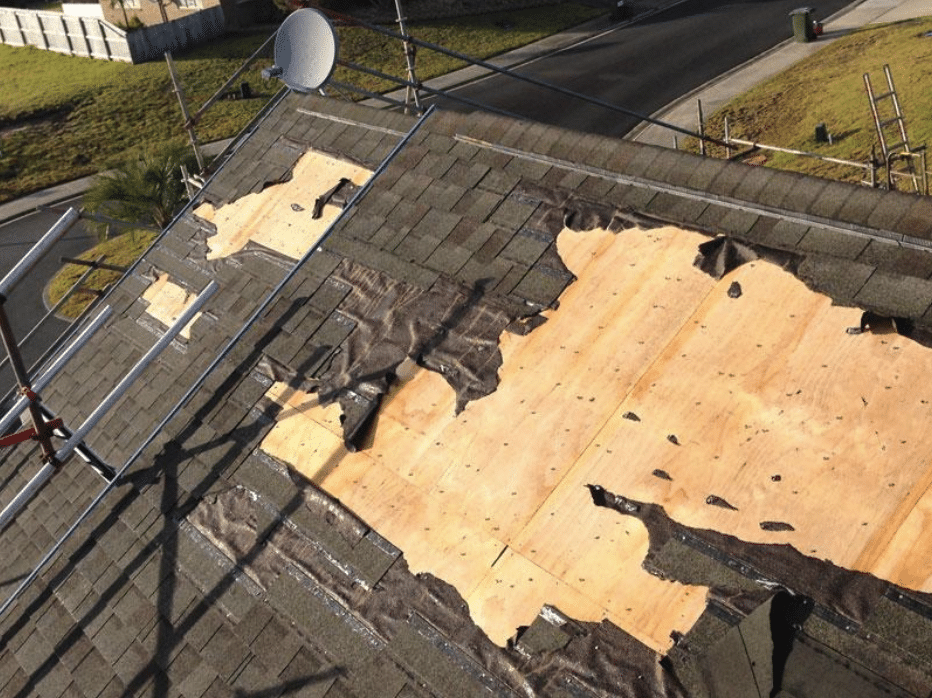
Asphalt shingles generally can only withstand winds up to 90 mph, meaning they have a Class D Wind Rating. If stronger winds occur, and they surely will in most areas, shingles can be ripped off the surface of the roof, leaving the home unprotected and prone to storm damage. It means homeowners will have to spend even more to handle repairs or replace the entire roof which can be a horrendous expense in the midst of a severe weather event
Polymer Composite shingles have Wind Ratings that range from Class F to Class H–ratings which means the shingles can withstand anywhere from 110 to 190 mph winds. They are made to withstand even the strongest hurricane-force winds, making them safe and an ideal choice for homes anywhere.
4. They Generate More Heat
While the granules on asphalt shingles are meant to protect from the sun’s rays, the protection isn’t perfect. They are notorious for generating more heat than other roofing options, which means a home’s interior temperature would rise, and the homeowners would spend more on both heating and cooling, respectively. Generating more heat also means asphalt shingles are more prone to the effects of weathering and will, therefore, become worn much sooner.
Polymer Composite shingles generally offer a much higher level of UV resistance. Some are designed to reflect the Sun’s rays, they are more resistant to weathering and will not wear down as fast. They can also allow a home’s interior to keep a better-regulated temperature so that homes will be comfortable year-round.
5. Prone to Algae Growth and Ice Dams
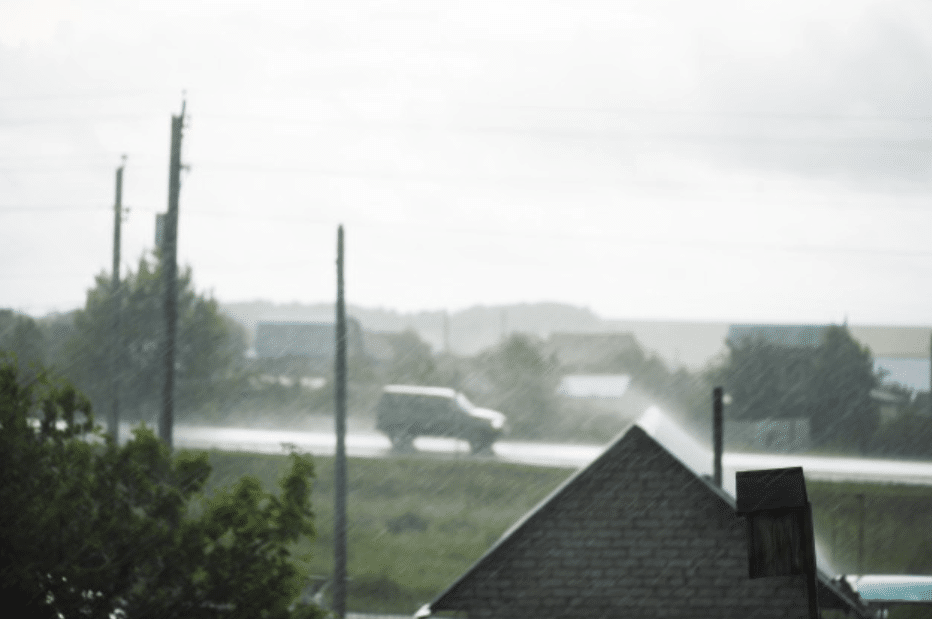
In high humidity climates and on north-facing roofs asphalt shingles on north-facing roofs asphalt shingles can be prone to algae growth. When excessive moisture collects, it can also lead to issues like mildew growth in the summer and ice dams in the winter. Excessive moisture can even permeate past the roof and into the attic or interior of the home, where it can cause even more damage.
Polymer composite shingles are naturally better designed for water-shedding and more resistant to moisture, so algae growth, ice dams, and other damaging effects of excessive moisture are off less concern.
6. They Might Not Last As Long as Expected
With all of the performance and installation issues that come with asphalt shingles, it means they can generally have a shorter lifespan compared to an option like polymer composite shingles. At some point, usually within 10-20 years, asphalt shingles will require replacing due to granule loss, cracking, accelerated weathering, or other issues like wind blow-off and hail damage.
Polymer Composite shingles can last 50 years or more without routine maintenance or needing to be replaced due to storm damage.
F-WAVE™ REVIA® Synthetic Shingles
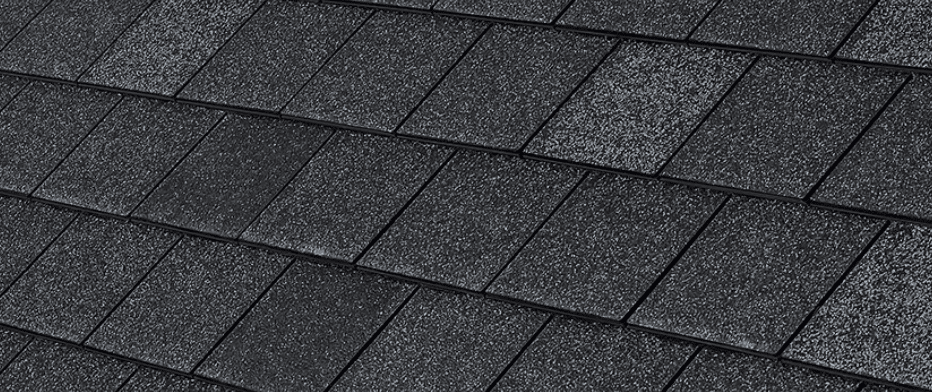
One brand of polymer composite synthetic shingles is the line from F Wave. They are made from a single layer of commercial-grade polymer that is engineered to be incredibly durable and maintenance-free. They offer all the benefits of a polymer composite shingle listed above, making them a much more reliable roofing option. In addition to their basic benefits, these synthetic shingles mimic a wide range of styles and profiles, from wood shake shingles, slate shingles, and even the popular designer asphalt shingles.
Polymer Composite Shingles vs. Asphalt Composite Shingles
When considering polymer composite shingles vs asphalt composite shingles, there are several factors to keep in mind. Asphalt shingles are the traditional choice as a product that has been around for 100 years, but they come with many known problems.
Choosing asphalt shingles for your roof may have you doing more repairs or having to replace your roof due to UV and storm damage sooner than expected. With polymer composite shingle roofing, you will have an easy-to-install, designed-to-be durable and maintenance-free roof that will help you avoid the issues that you would have asphalt.
For more info on how you can make the best roofing choice, contact a roofing expert at Best Roof In Town today.
